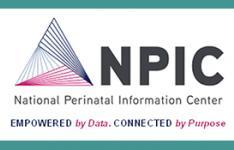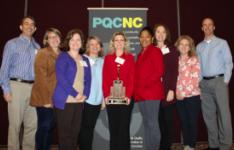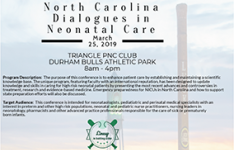News
Here's the recent news from PQCNC.
Thursday, March 14, 201912:00 PM to 1:00 PM EDTRegister herePurpose/Goal:The purpose of this activity is to enable the learner to have an understanding of the resuts and implications of the ARRIVE trial.Objectives: Read more...
The PQCNC Quality Improvement Award recognizes a North Carolina delivery unit that has made a measurable and sustained positive change in a major perinatal quality improvement indicator/issue through the implementation of quality improvement activities within the previous three years. Read more...
Based on the demonstration of outstanding Quality Improvement Methodology PQCNC is proud to announce the recipient of the 2018 PQCNC Quality Award: Atrium Health Cabarrus, home of the Jeff Gordon Childrens Hospital and its outstanding NICU for their project Improving Neonatal Outcomes Through Implementing an Antibiotic Stewardship Program. Read more...
As a the PQCNC membership you considered all the initiatives presented in our last email (honestly, we need to do them all!) and voted for what you felt were the top priority projects. We're presenting the top three vote-getters for your consideration.So, now it's your turn for one last look. Read more...
Presentations from Dialogues 2019 featuring internationally recognized faculty and designed to update knowledge and skills in caring for high risk neonatal patients by presenting the most recent advances and controversies in treatment, research and evidence based medicine - Read more...
It is again time to consider what the next best opportunities are for PQCNC newborn and neonatal teams to attack as we continue our efforts to make North Carolina the best place to give birth and be born. PQCNC success is rooted in the belief that our stakeholders know best how to accomplish this mission. Read more...
We are looking forward to the creation, development and then execution of our next project, a combined effort that will focus on Maternal Substance Use and Neonatal Abstinence Syndrome. This initiative will for the first time engage PQCNC in work that requires specified activities in the pre and post-partum periods. Similarly we will be planning interventions to support the care of newborns born to mothers living with substance use disorder. Read more...
The PQCNC Quality Improvement Award recognizes a North Carolina delivery unit that has made a measurable and sustained positive change in a major perinatal quality improvement indicator/issue through the implementation of quality improvement activities within the previous three years. Read more...








